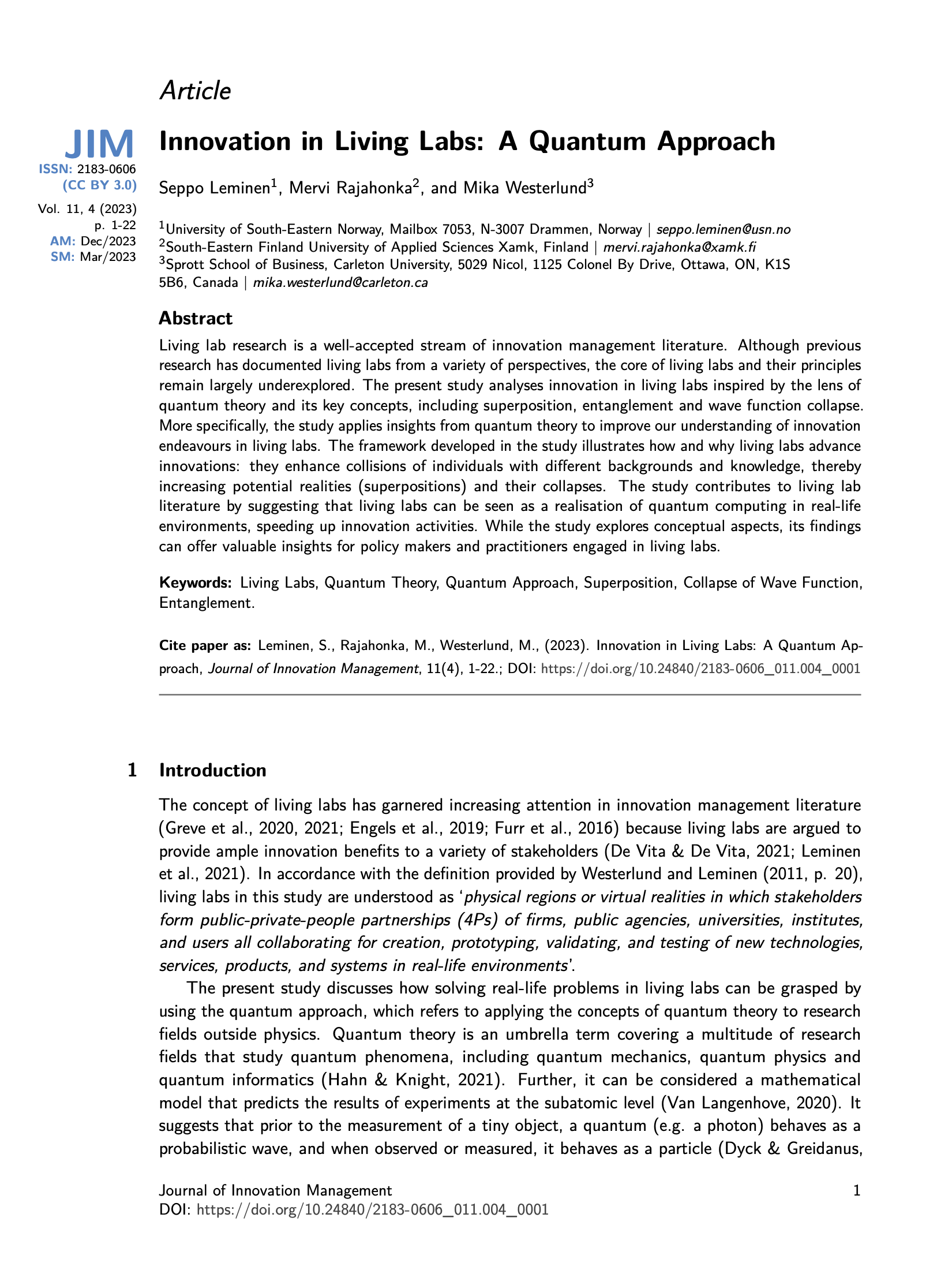Innovation in Living Labs: A Quantum Approach
Main Article Content
Abstract
Living lab research is a well-accepted stream of innovation management literature. Although previous research has documented living labs from a variety of perspectives, the core of living labs and their principles remain largely underexplored. The present study analyses innovation in living labs inspired by the lens of quantum theory and its key concepts, including superposition, entanglement and wave function collapse. More specifically, the study applies insights from quantum theory to improve our understanding of innovation endeavours in living labs. The framework developed in the study illustrates how and why living labs advance innovations: they enhance collisions of individuals with different backgrounds and knowledge, thereby increasing potential realities (superpositions) and their collapses. The study contributes to living lab literature by suggesting that living labs can be seen as a realisation of quantum computing in real-life environments, speeding up innovation activities. While the study explores conceptual aspects, its findings can offer valuable insights for policy makers and practitioners engaged in living labs.
Article Details
Authors who publish with this journal agree to the following terms:
- Authors retain copyright and grant the journal right of first publication with the work simultaneously licensed under a Creative Commons Attribution License that allows others to share the work with an acknowledgement of the work's authorship and initial publication in this journal.
- Authors are able to enter into separate, additional contractual arrangements for the non-exclusive distribution of the journal's published version of the work (e.g., post it to an institutional repository or publish it in a book), with an acknowledgement of its initial publication in this journal.
- Authors are permitted and encouraged to post their work online (e.g., in institutional repositories or on their website) prior to and during the submission process, as it can lead to productive exchanges, as well as earlier and greater citation of published work (See The Effect of Open Access).

